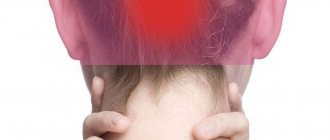author: T. Yu. Grozdova, MD, Vice President of the National Association of Clinical Nutrition, Head of the Editorial Board, Scientific Editor of the journal “Practical Dietetics”
The human body is influenced by many factors throughout life. In response to any impact, a series of stereotypical adaptive reactions arise, aimed at ensuring the protection of the body. The combination of these defensive reactions was called the adaptation syndrome or stress by the outstanding Canadian scientist Hans Selye, the progenitor of the doctrine of stress. The form of this state is multifaceted, endlessly interesting and, of course, raises a lot of questions. How the body compensates for the effects of damaging factors and responds to stress, what metabolic features develop following the impact of stressors, what the human body primarily needs as nutritional support and how to ensure adequate nutrition. It is interesting to consider all these directions from the standpoint of the pathophysiology of adaptive reactions that change the state of the internal environment of the body.
What is stress?
Stress is a tense state of the body that appears as a defensive reaction to the influence of various unfavorable factors. Many people, being stressed every day, do not even understand that this is an abnormal phenomenon that needs to be gotten rid of. Stress awaits a person everywhere: at home, at work, on public transport. When stressful situations are irregular, there is nothing to worry about. But when the state of stress lasts a long time and occurs frequently, it is called distress. Against this background, serious illnesses may develop.
How does stress go?
Any stress begins with an anxiety stage
. The body detects that external factors have gone beyond the limits of comfort and mobilizes protective resources. The state of anxiety is familiar to everyone due to increased heartbeat, heightened hearing and vision, and severe anxiety, because of which “one cannot sit still.”
For example, a sharp sound is also stressful. First involuntary reaction
bodies on him - to shudder. This means that all body systems are prepared to search for danger and escape from it.
Of course, the stress that a person constantly experiences in life is caused by more complex stimuli and is longer lasting. And the body reacts to them in a much more complex manner. All body systems are activated in response to stress
: nervous, cardiovascular and even hormonal.
If the impact of the uncomfortable situation does not stop, a period of adaptation
. The body enters a “working mode” sufficient to respond to changed conditions. Moreover, this condition can last quite a long time - months and even years.
A good example is endless rush jobs at work, which, oddly enough, a person has the strength to do. For the time being. After all, already at this stage the immune system may malfunction, signaling the intense work of the endocrine gland.
If, for example, the same emergency does not want to end, the third stage of stress begins - exhaustion
. That is, the body’s reserve capabilities have already been exhausted. And the body signals with a newly appeared alarm that it is time to stop using it to its fullest.
There is a feeling of fatigue that does not go away
even after rest. At the same time, different people behave differently at this stage. Someone tries to “squeeze out” the remaining strength from themselves, another becomes passive and indifferent, feels like a failure.
Causes of stress
Stress occurs in a person for various reasons. The main factors provoking an unstable state include two main groups of relationships: personal and work. Operating factors include:
- Excessive or insufficient load.
- Poor relationships with colleagues.
- Harsh physical working conditions.
- There is no mutual understanding with management.
- Simultaneous execution of several tasks.
Personal factors include: problems and frequent quarrels in the family, poor nutrition, sleep disturbances, and problems with self-esteem.
Symptoms of psycho-emotional stress
Psycho-emotional stress is characterized by disruption of the functioning of internal organs, as well as mental disorders. A person often begins to have headaches, stomach ache, and blood pressure rises. Weakness appears and sleep is disturbed. If the main symptoms occur, you need to take immediate action and not aggravate the condition.
Physiological signs
When a person gets into a state of stress, he begins to experience constant anxiety and nervousness. An unstable mental state affects the functioning of the entire body, causing the following negative physiological changes:
- Fatigue and weakness.
- Indigestion accompanied by constipation or diarrhea.
- Tremor of the limbs.
- Hair loss.
- Development of skin diseases.
- Heart pain, tachycardia.
- Losing or gaining weight for no apparent reason.
- Headache.
- Insomnia.
People who are in a state of initial or chronic stress have decreased libido and are often plagued by panic attacks.
Psychological signs
High susceptibility to stress is associated with an unstable mental state of a person. He becomes irritable and indecisive. Often feels anxious, suspicious, and panicky. A person under stress cannot concentrate and his memory deteriorates. The mood is most often bad, you don’t like your work, you don’t like your colleagues. Against the backdrop of poor psychological well-being, self-esteem decreases.
Behavioral symptoms
People with mental and physiological disorders begin to experience negative changes in behavior. The person becomes restless and withdrawn, he has no appetite. Loss of appetite often causes weight loss. Behavioral signs also include:
- Speech impairment.
- Loss of interest in one's appearance.
- Incorrect time management.
- Constant rush for no reason.
- Problems in the family or at work are not solved, but only worsen.
High stress levels in the body provoke the development of alcoholism and drug addiction. A person still tries to cope with problems, relax and forget.
Signs of stress
Signs of stress:
- sleep and appetite disturbances;
- restlessness and anxiety;
- decreased concentration, impaired memory and speed of thinking;
- inability to relax;
- a feeling of melancholy, pessimism, self-pity;
- behavior may become fussy, nail biting, lip biting, and tics appear.
If you notice such changes in yourself or your loved ones, try to consult a doctor as soon as possible. Often it is stress that provokes the development of diseases. Timely seeking help makes it possible to avoid serious health problems.
Stages of stress development
The effect of stress on the body can be considered as a process that consists of three successive stages of development. Stress should not be confused with nervous tension. The second state is short-term in nature and refers to mental unrest. There are no hormonal surges or changes in the functioning of internal organs due to nervous tension.
First stage: anxiety
The first phase of anxiety occurs as the body's reaction to stimuli. A person experiences a burst of energy, his blood pressure rises, and he begins to worry. The body begins to produce cortisol and adrenaline - stress hormones. In such a state, it is difficult to calm down and pull yourself together.
Second stage: resistance
At this stage, the production of stress hormones decreases somewhat, and the body functions normally, but is on high alert. At this stage, the person calms down a little, and the psychological manifestations of stress disappear.
Third stage: exhaustion
At the third stage, somatic diseases begin to develop. Immunity decreases, against the background of this, protective functions weaken. If the body is in a state of stress for a long time, then disturbances in the functioning of the immune, cardiovascular system, digestion and other organs inevitably develop.
- Anonymously
- For free
- Around the clock
Leave a request for a free consultation with a specialist
We will contact you as soon as possible!
By clicking on the button, you consent to the processing of your personal data
Everything you wanted to know about stress: prevention methods. Part 1
Publication date: November 24, 2021 Articles
the “Helpline” department of the State Budgetary Healthcare Institution SKKSPB No. 1, tells the story .
Stress is a destroyer, stress is a creator
The word “stress” has become firmly established in our everyday life. And yet, what kind of phenomenon is this? I propose to look at a familiar concept from a somewhat unexpected side.
Translated from English, the word “stress” means pressure, load, tension, as well as external influences that cause this condition. Stress that causes negative consequences is called “distress”, positive ones are called “eustress”.
The founder of the concept of stress, G. Selye, gave the following definition of stress: “The body’s nonspecific response to any demand that is placed on it.” What does a non-specific response mean? This means that in various extreme situations, the behavioral response of each person’s personality and the consequences for his body will be different (non-specific). Those. one person’s blood pressure rises, another’s gastritis or ulcer worsens, the third gives a mental reaction, even a pathological one. With the same load, each person “breaks the weakest link” in the body.
At the same time, the internal physiological response will be the same and will be expressed in three stages of stress development:
1) anxiety (shock phase): the body’s defense mechanisms are activated;
2) resistance (adaptation or stabilization phase): the body’s adaptation to new conditions that impose increased demands is achieved. But if exposure to stress factors continues, the third stage develops;
3) exhaustion: wear and tear of the body’s adaptive and protective mechanisms occurs and a violation of the coordination of vital functions increases. As a result, somatic and mental illnesses develop.
Is it possible to avoid the onset of the exhaustion stage? Yes, I have. Stress prevention methods:
- Lead an active lifestyle and don’t forget about rest! Even the busiest person should always find time to relax. It is important to rest not only your body, but also your soul. You can take a walk, read an interesting book, watch an exciting movie, chat with friends, play with your pets. It is enough to change the direction of activity - work intellectually, do physical work. So much for rest. If you are physically overworked, overload your brain.
- eat food enriched with vitamins;
- get enough sleep. Healthy sleep is a very good protection against stress in general and a good prevention of exam stress. A well-rested person has a higher resistance to stress, and all cognitive functions definitely work better. If you really can’t stay up late, try at least not to eat three hours before bedtime, and not to drink tea, coffee, or alcohol before bed. It’s better to take a walk for half an hour or at least just stand for a while near an open window or on the balcony (without a cigarette, of course). It is advisable not to forget to ventilate the bedroom;
- give up alcoholic beverages and do not use drugs; Limit your consumption of caffeine (coffee, strong black tea). I especially want to note the harm of drinking energy drinks (just expensive, heavily advertised coffee with a heavy dose of sugar). The harm of energy drinks is as follows: frequent consumption of them increases blood pressure. The drink itself does not provide energy to the body; it works from personal reserves, which the body takes from itself . The consequences of taking energy drinks are irritability, sleep disturbance, depression, addiction to caffeine. The increased content of vitamin B in energy drinks increases the heart rate and provokes trembling of the limbs. And don't forget about their high calorie content;
- do not watch or listen to anything that gives unpleasant feelings and impressions (movies, music, news). Learn to analyze information pouring in from all sides and not take dubious videos on faith;
Prevention of stress should consist of increasing your resources and taking care of your body. And any stimulation of oneself is an attempt to raise a driven horse. Even the word stimulus in ancient Greek means “whip, driver’s stick.”
Read our articles
Watch and read us on social networks
The illustration for this publication was taken from the public image library https://www.freepik.com/ and from open sources. You can read in detail about using illustrations from the Freepik library here
Prevention of stress conditions
To prevent acute stress from causing harm to the body, its occurrence and development should be prevented. Preventative measures for stress may include the following:
- Systematic physical exercises. To develop the respiratory system, it is recommended to attend dancing, swimming, and running in the morning.
- Balanced diet. It is necessary to balance the diet, introduce foods rich in vitamins and microelements into the menu.
- Follow the correct daily routine, close to the natural biorhythms of a person. Try to go to bed no later than midnight.
- Meditation. This will help the body restore lost strength and energy. You should devote an hour a day to meditation. Pleasant music will help you recover.
Medicines should only be prescribed by a doctor; self-medication is not recommended.
Types of stress
Psychologists differentiate stress by the duration of symptoms and the cause of their occurrence. Various life situations can influence the development of stress. Only people with a healthy psyche, as well as those who lead a healthy lifestyle, can avoid it.
Chronic emotional stress
This type of stress occurs when you spend a long time in a negative atmosphere. These may be problems in the family that no one can solve. Over time, tension develops into stress, which leads to the development of mental and physiological abnormalities. Experienced psychologists will help you cope with chronic stress.
Psycho-emotional
The main sign of psycho-emotional stress is the presence of emotion in the stress reaction or the inclusion of motivation in it that causes the emotion. A person’s emotional mood in relation to a stimulus causes mental stress.
Destructive
This type manifests itself in two ways. A person may fall into a stupor, become lethargic and apathetic. He is not interested in life and all its joys. Or, on the contrary, an impulsive reaction may occur. The person becomes overly active and fussy. He takes on many things and does not complete any of them.
Short-term
The body's response to a brief but significant impact of a stressful source can be both short-term and long-term. It depends on the severity of the situation and the internal state of the person. People with unstable psyches experience shocks for a long time.
Interior
A stressful state affects all functions of the body, including the functioning of internal organs. Against the background of psychological stress, problems with digestion, breathing, and heart function begin. The help of a psychologist will help not only get rid of psychological problems, but also normalize the functioning of internal systems.
Positive
A slight nervous shock allows you to mobilize internal resources and find a way out of a difficult situation. Usually this is a short-term single stress that quickly passes. A positive shake-up does not bring any consequences for the body.
Nervous
A strong shock or negative situation affects the state of the nervous system. At the same time, the human body begins to produce adrenaline, which further provokes the development of stress. In cases of nervous stress, people are often prescribed antidepressants that improve the condition.
Informational
This type of stress occurs when there is information overload. It is usually experienced by people who do the work and bear great responsibility for the result obtained. When a person does not have time to make the right decision, a stressful situation arises.
Causes
There are two main types of stressors (R. Lazarus): mental (emotional) and physiological.
- Mental stressors are a feeling of threat, danger, novelty, the need to solve an overwhelming and complex task, the need for risk, a sudden event, resentment, overload (in everyday life this is usually called “nervous stress.”)
- Physiological stressors are those conditions that directly affect the human body and lead to a violation of its integrity, inadequate environmental temperature conditions, pain, and difficulty breathing.
Types of responses to stress
All people react to stress differently. Some become despondent and apathetic. Others begin to show aggression. If measures are not taken in time, the state of stress can turn into prolonged depression, which can only be cured with the help of specialists.
Defensive reaction
A person under stress is always in tension. The most common defensive reaction is aggression or irritability. A person cannot show patience and tact, and breaks down over trifles.
Depression
A mental disorder that develops from various causes requires qualified treatment. Depression often affects people who cannot solve their problems for a very long time. Alcoholics and drug addicts also suffer from depression.
Ways to get out of stress
You can get out of stress on your own, it is only important to find a suitable way. The most important thing is to bring bright colors into your life, improve your mood, and learn to think positively. Even in a negative situation, you can see the benefits if you want.
Healthy lifestyle
It is necessary to build the correct day and night routine. Meals should be complete and on time. Moderate physical activity, sports and healthy family relationships will only help overcome stress. Don't overwork yourself at work and at home.
Vitamins
Overcoming stress is possible for everyone. It is important that the body receives all the necessary vitamins and microelements. You can buy pharmaceutical complexes, and also eat fruits and vegetables rich in vitamins. In a healthy body, protective functions work perfectly. The psyche and internal systems are not so susceptible to stress.
Rest
Rational rest helps relieve stress and restore. You can’t work too hard, because psychological fatigue is added to physical fatigue. And this is already fraught with stress. During rest, you should not think about work, but while at work, you should not think about home. The ability to switch will help avoid stress.
Full sleep
Nothing restores the body better than healthy, full sleep. During sleep, the body produces hormones responsible for growth and restoration of functions. Therefore, you should try to go to bed before 23-00 in order to get enough sleep and wake up cheerful and in a good mood.
Hobbies
When a person does what he loves, he experiences joy and satisfaction. Any hobby may take time, but it has a beneficial effect on a person’s mental state. This helps to get rid of problems and forget all the bad things for a while. A rested brain will quickly tell you how to cope with negativity.
Physical exercise
Regular physical activity will help release excess adrenaline and help the body relax. Exercising in the fresh air will help normalize breathing and enrich internal organs with oxygen. A morning jog in nature will have a positive effect on your mood, and happiness hormones will begin to be produced.
Aromatherapy, dancing, music
The healing power of aromatic oils has been known since ancient times. They can be added to the bath, applied to the body, or used as an air freshener. When essential oils enter the body, they cause a surge of good mood and euphoria, and calm the nervous system. Dancing and pleasant, soothing music, such as classical, have the same effect on a person.
Stress: how to reduce its impact on a person’s quality of life
Stress (tension, load) is a normal adaptive reaction of the body to physical or psychological stimuli that disrupt its self-regulation, and manifests itself in a certain state of the nervous system and the whole organism [1]. Most people have experienced symptoms of chronic stress at least once in their lives: feeling constantly tired, irritable, unwilling to do anything, getting up early in the morning, difficulty concentrating at work or school. These symptoms are often accompanied by a state of constant malaise (runny nose, cough, low-grade fever). Let's take a closer look at the picture of stress, how it manifests itself and how you can counteract it. Canadian endocrinologist Hans Selye in 1936 first described the physiology of stress within the framework of the general adaptation syndrome, which includes 3 stages (Fig. 1):
anxiety or mobilization; resistance; exhaustion. At the mobilization stage, the body's adaptive mechanisms of self-regulation are activated. The release of adaptation hormones (glucocorticoids) into the blood increases, trying to restore the normal functioning of organs and systems. It is at this stage that the glucocorticoids, adrenaline and norepinephrine released “block” the immune system, and the person may develop an acute respiratory infection or other disease. At this stage, the body prepares for defense or flight. The resistance stage occurs with relative stabilization of the functioning of the disturbed body systems. At this moment, stable resistance to stress factors occurs. In this case, adaptation energy is consumed, which, according to Hans Selye, has a limited supply and is not replenished, but according to another scientist, Bernard Goldstone, it is replenished as it is consumed. The person becomes aggressive, irritable, and begins to fight the disease. When the process of energy consumption goes faster than the process of its replenishment, the stage of exhaustion occurs. During the struggle, all reserve energy reserves are consumed. All symptoms at this stage are like a “cry for help.” The body loses its ability to resist, and psychosomatic disorders begin, including deep depression or death [1, 2]. There are two types of stress - distress
and
eustress
.
Eustress is stress resulting from positive emotions or short-term and mild stress that mobilizes the body’s strength. Such stress has a positive effect on the human body and is not dangerous. Distress is severe stress caused by negative factors (physical, mental) that are very difficult for the body to cope with. Such stress has a negative impact on the nervous system and human health in general. These two types of stress are divided into types based on the nature of the impact. Emotional stress
is the very first reaction to stress.
Activates metabolic processes in the body, the autonomic nervous system, and the endocrine system. If it occurs frequently or lasts for a long time, it leads to imbalance of these systems. Psychological stress
is caused by social factors or one’s own worries.
Caused by conflict situations in society, worries about the future. With such stress, a person can experience emotions such as fear, excitement, envy, melancholy, jealousy, irritability, anxiety, restlessness, etc. Biological stress
- caused by physical stress factors.
These include: burns, hypothermia, disease, poisoning, injuries, hunger, radiation, etc. It is worth noting another type of stress - professional stress
, which arises due to the influence of work stress factors: harmful working conditions (pollution, noise);
inconvenient work schedule; poor nutrition; poor relationships with management, employees, classmates; overload, fast pace of work; monotony, same type of actions [1]. The influence of stress on human health has various manifestations, the main of which are: headaches that do not have a characteristic localization; chronic lack of sleep and insomnia; functional disorders of the cardiovascular system: bradycardia, arterial hypertension, myocardial infarction; impaired concentration, increased fatigue, decreased performance; diseases of the gastrointestinal tract: gastritis, peptic ulcer, dyspepsia of neurotic origin; exacerbation of cancer; decreased immunity, as a result of which the body may be susceptible to viral infection; disruption of neuroendocrine regulation, irregular production of hormones, which leads to the development of osteoporosis, diabetes mellitus or other metabolic diseases; degeneration of brain tissue, muscle rigidity or atony; Alcohol or drug addiction may appear [2]. If a stress factor has affected the body for a short time, then this can be beneficial: At a moment of strong stress, nerve cells are activated, so the brain begins to work at maximum. Working memory improves. During an exam, a student can talk about material that, in his opinion, he has never learned. The level of oxytocin, the hormone of “tenderness and trust,” increases. This helps eliminate conflict situations and build trusting relationships. Reserve energy reserves are activated, strength and motivation appear to achieve your goals. In the process of overcoming difficulties, the body's endurance increases. The immune system is activated, biological indicators improve. The sensitivity of all analyzers is heightened, which helps to concentrate on solving the problem [2]. A certain degree of stress is a normal part of the living organism's response to inevitable changes in the physical and psychosocial sphere. Moderate stress motivates and improves performance under appropriate stress conditions. Therefore, the stress response itself does not lead to undesirable health consequences and actually protects the body from harmful effects. A key question is when stress becomes non-physiological, leading to dysregulation of stress-related processes, neurotransmitters and brain activity with further consequences for health. How to identify in practice the first signs of the pathological effects of stress on the human body? You need to pay attention to symptoms that seem insignificant. For example, a person sleeps for 8-9 hours, and in the morning gets up exhausted, it seems to him that he did not get enough sleep; During the day he constantly yawns, he wants to lie down and close his eyes; he confuses letters when writing them, cannot concentrate on basic things; he increasingly craves sweets, especially chocolate; people around him say that he has become absent-minded, grouchy, and irritable. The patient notices that he begins to get colds more often, and, as a rule, they last longer than usual and it takes a long time to recover from them. Why is this happening? Let us recall that under stress, the central nervous system is activated, which triggers the stress response: the peripheral nervous system is activated, and various hormones are released by the endocrine glands. The stress response is a series of biological and psychological responses that are determined by a variety of biological networks and their mediators to maintain stability under the influence of stress factors [3]. Stress overload, which is also called excessive allostatic load, can disrupt the biological interaction of organs in the human body when there is a significant disruption of network relationships and biochemical processes, leading to undesirable changes in organs and tissues [3, 4]. The organs responsible for immunity also suffer. Under stress conditions, the level of hormones—glucocorticoids—increases sharply in the blood, a high concentration of which suppresses the body’s immune system. From a physiological perspective, each time a stress response is activated, adjustments must occur to adapt to the changing environment. Allostasis is the process by which the body restores dynamic stability: it is the activation of multiple biological networks and their mediators, caused by natural changes within an acceptable range of variability [4]. In allostasis, the stress response occurs quickly, persists for the required period of time, and is terminated, providing regulation of stress-related networks. This process is considered as autoregulation. Although allostatic processes can be adaptive for a certain limited period, with prolonged or excessive allostatic load, the “cost of adaptation” becomes so high that the stress response is disrupted [4]. This may lead to changes in stress-related networks, leading to pathophysiological changes and increased susceptibility to various mental, physical disorders and infectious factors. Excess allostatic load can lead to serious health problems. It can disrupt almost any system in the body. The most common manifestations of these disorders are the following symptoms [3]: physical: pain, headache, nausea, palpitations, fatigue, frequent colds; mental: memory problems, inability to concentrate, negative perceptions, anxiety, constant worry; emotional: mood swings, irritability, short temper, agitation, depression, feeling of loneliness; behavioral: undereating or overeating, lack of sleep, self-isolation, sedentary lifestyle. All these symptoms are interrelated and can enhance each other. Statistics show the relationship between mental factors and the development and clinical picture of infectious diseases. People exposed to stress develop upper respiratory tract infections 2-3 times more often and stay ill for longer than the average population. In the general course of the disease, its internal picture occupies a very large, sometimes dominant place. Sometimes it is much easier to eliminate the real pathogen in a patient’s body than to “evict” an imaginary microbe from his psyche. In such cases, the impact on the patient’s psyche - psychotherapy can be the most important method of treatment. Sometimes the cause of an illness (or its exacerbation) can be a word carelessly spoken by someone and misunderstood by the person [5]. Thus, the effects of stress on the body are very diverse. Stress and its consequences are directly proportional phenomena: the stronger and longer the stress, the more negative the impact it has on health. How to help a patient cope with stress, how to reduce its impact on a person, how to prevent the pathological development of stress? First of all, you need to be optimistic. Optimistic people get sick much less and are more successful in life because they are not inclined to consider everything that happens to them as stress. In addition, you must: Sleep at least 8 hours. Exercise. Spend more time outdoors. Change your diet: reduce the consumption of fatty, spicy, smoked foods, eat more vegetables, fruits high in vitamin C (100 mg or more per 100 g of product): broccoli, Brussels sprouts, kale, turnip greens, parsley, horseradish, bell peppers, black currant, guava. There are currently no medications indicated for the treatment of stress. Doctors usually prescribe beta blockers, tranquilizers and antidepressants. However, these drugs primarily target the phenotypic consequences of disrupted organ interactions rather than optimizing or restoring autoregulation of the underlying dysregulated networks. In addition, their long-term use can cause physiological and psychological dependence, affect autoregulation, thereby making an even greater contribution to the development of pathology [5]. Complex homeopathic medicines that have appeared on the market are an additional tool that a doctor can use to improve treatment results by influencing autoregulation and its optimization. Their goal is to restore or optimize the patient's natural self-regulatory ability, i.e., return the patient to an optimal state for eliminating the disease. Drugs with bioregulatory properties are effective and safe; they are capable of restoring network interactions between organs and systems, cells and their environment, as well as individual molecules; they can be used for a long time and combined with other drugs and treatment methods [7]. One of these drugs is Homeostres (Boiron, France), which has a physiological and targeted effect on the key manifestations of stress. It quickly eliminates symptoms of irritability and anxiety; normalizes sleep, improves the process of falling asleep; reduces fatigue and nausea; does not cause drowsiness, lethargy or addiction. The drug contains the following components: Aconitum napellus (aconitum napellus) C6; Belladonna (belladonna) C6; Calendula officinalis (calendula officinalis) C6; Chelidonium majus (chelidonium majus) C6; Jequirity C6; Viburnum opulus (vitrum opulus) C6.
The presence of aconite, belladonna and calendula in the composition, in addition to affecting the symptoms of mental disorders, determines the ability to reduce inflammatory processes, so this drug can be successfully used in a comprehensive program for the treatment of acute respiratory infections in children and adults exposed to frequent stress. Thanks to these components, the activity of the immune system increases. The drug is prescribed according to the following scheme: 2 tablets 3 times a day, dissolve in the mouth 20-30 minutes before meals. For children under 6 years of age, the drug is dissolved in a small amount of water. The course of treatment is 7-14 days. If necessary, courses can be repeated. In the works of S. V. Romasenko et al. [7] showed that Homeostres reduces somatovegetative disorders; for example, its use reduces fatigue in 44% of patients by the 3rd day of therapy (Fig. 2).
In a study by L. G. Khachatryan [8], it was found that Homeostres improves the state of the psycho-emotional sphere (Fig. 3). Thus, anxiety and phobias in the group of children with perinatal damage to the nervous system decreased by 2 times already by the 7th day of treatment, while the effectiveness of Homeostres was comparable to the effectiveness of using phenibut.
No side or toxic effects were noted when taking the drug in any study; all patients tolerated the treatment well. Thus, the administration of this drug reduces sensitivity to stress and its manifestations, and improves the quality of life of patients suffering from chronic stress. Considering that Homeostres is non-toxic and does not cause any side effects, it can be recommended for the prevention or treatment of the effects of stress in children and adults.
Fighting stress in a clinic in Moscow
When you can’t cope with stress on your own, you need to seek help from specialists. Our clinic has created all the conditions to combat psycho-emotional disorders. Each patient has an individual approach, treatment is carried out in several stages. For the greatest effectiveness, complex treatment is used, including drug therapy and psychological assistance.
Drug therapy
Reducing stress occurs with the help of high-quality and effective medicines. Thanks to effective medications, a person’s sleep is normalized, anxiety levels are reduced, and the functioning of internal systems is normalized. Clinic specialists prescribe medications individually to each patient, depending on the severity of the stressful condition, age and the presence of concomitant diseases.
Help from a psychologist
Prolonged experiences, anxiety and panic negatively affect the human psyche. Drug treatment alone is not enough to relieve the patient from stress. This requires the help of an experienced, qualified psychologist. The specialist will conduct a personal conversation and identify the reasons that led to the stressful situation. The support of a psychologist will help you cope with difficulties and problems without harm to the body.
- Service
- Service cost
- Narcologist at home
- from RUR 4,500 order a service
- Coding for alcoholism
- from RUB 5,000 order a service
- Vivitrol coding
- from RUR 26,000 order a service
- Naltrexone coding
- from RUB 35,000 order a service
- Esperal coding
- from RUB 15,000 order a service
- Coding Torpedo
- from RUB 5,500 order a service
- Double block
- from RUR 8,000 order a service
- Classic hypnosis
- from RUB 13,000 order a service
- Ericksonian hypnosis
- from RUR 8,000 order a service
- Tetlong for 3 months
- from RUB 10,500 order a service
- Coding Esperal gel
- from RUB 15,000 order a service
- Narcopsychotherapy session
- from RUB 5,000 order a service
- Doublet - express output and encoding
- from RUB 13,500 order a service
- Hospitalization
- from RUB 5,000 order a service
- Withdrawal from binge drinking in hospital
- from RUR 2,000/day order a service
- Rehabilitation from alcoholism with a guarantee
- from RUB 25,000/month. order a service
- Rehabilitation from drug addiction with a guarantee
- from RUB 25,000/month. order a service
How to cope with stress
You can learn to cope with stress. This is possible on two levels:
- increasing the overall stress resistance of the body;
- organization of special psychological training, development of skills for instant assessment of the situation, emotional-volitional regulation and experience of behavior in specific, stressful conditions.
Thus, a person can be taught to act effectively even in a situation of severe stress, and skills in the field of self-healing can be developed in the event of the onset or threat of the onset of the stage of exhaustion (see above). But if a person, without certain self-help skills, experience, or sufficiently stable functioning of the nervous system, is already experiencing severe stress and is not able to get out of the situation on his own, special professional help is needed.
Since, as we have already noted, various disorders and diseases can result from stress, their timely diagnosis at the earliest stages is very important.
We work with patients whose contact with us was prompted by experiencing stress, taking into account all the necessary components of providing medical and psychological care: diagnosis, prevention, treatment. Our work is to assess the consequences caused to the body by stress factors, eliminate these consequences, and develop self-help skills during stress as a means of subsequent prevention.
Do you need a consultation? Call us now:











